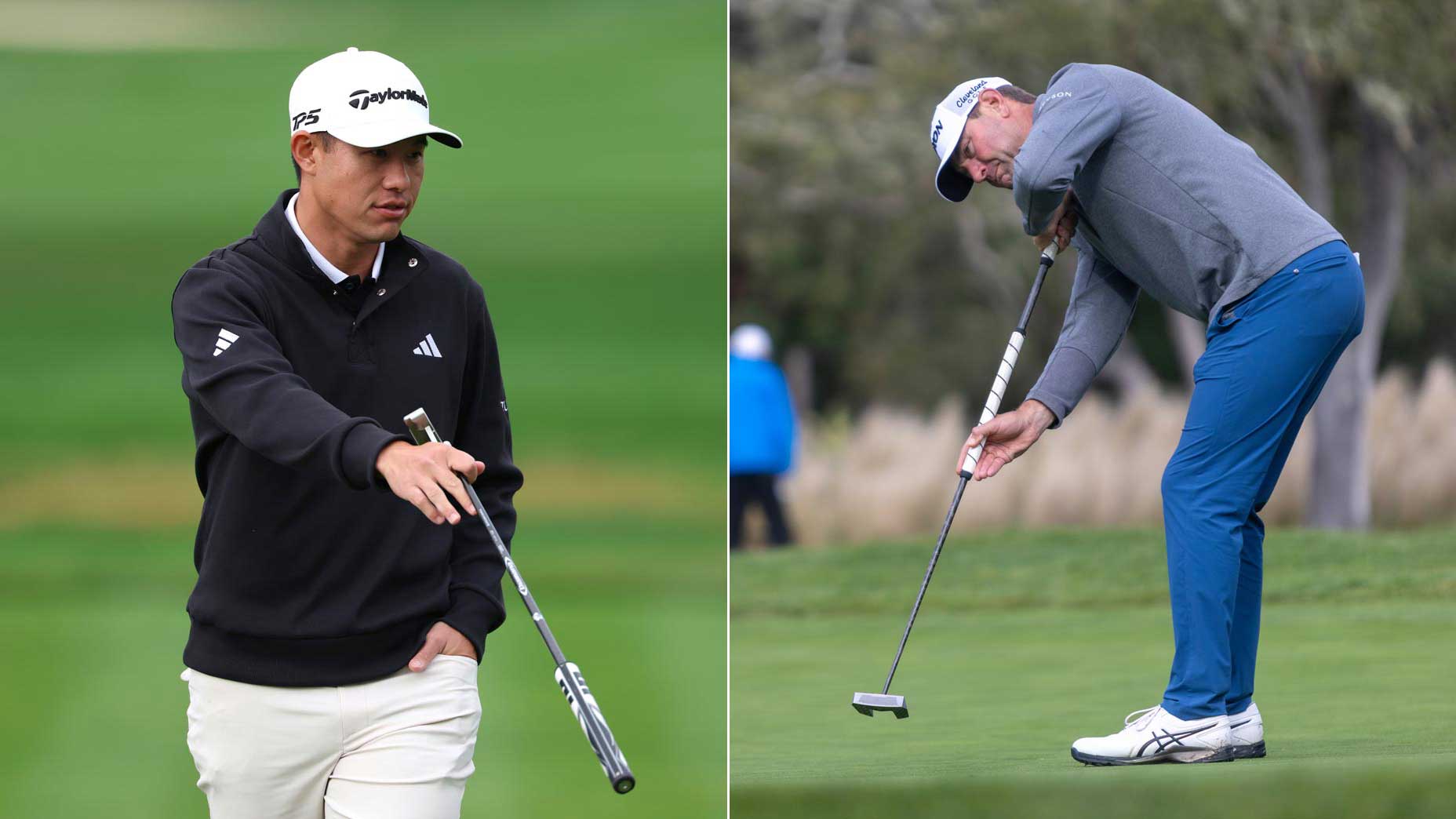The AimPoint putting technique has taken the PGA Tour by storm in recent years. Many top players, such as Collin Morikawa, have adopted the green-reading strategy to improve their rolls. But not everyone is a fan.
Last week, former U.S. Open champion Lucas Glover argued that the AimPoint technique — which requires players to test the slope of the green using their feet at multiple points on their line — should be “banned.” His primary reason? Slow play.
It’s easy to support an idea when improving pace of play is invoked. But not every pro is on the same page.
Morikawa is one of them. On Tuesday in his press conference ahead of the 2025 Genesis Invitational at Torrey Pines, the two-time major champion was asked about Glover’s AimPoint criticism.
Morikawa’s first reaction? He suggested Glover’s own preferred putting technique should be banned.
“I have nothing against Lucas [Glover],” Morikawa began, “but if we’re banning AimPoint I think we should ban long putters as well.”
Glover, who won the 2009 U.S. Open with a standard-length putter, has switched to using a long putter late in his career. Long putters evolved from the anchored-putting technique, which involved a player anchoring the butt of a long putter into his chest. The goal was to increase stability. But after multiple players won majors anchoring their putters, the USGA and R&A took drastic action. The governing bodies announced a ban of the technique throughout the game in 2013, which went into effect in 2016.
Since then, some players have continued to use or adopted long putters into their games. No longer allowed to anchor them to their chest, many long-putter users do the next best thing, placing their thumb at the end of the putter handle and almost anchoring their thumb to their chest.
This new technique technically abides by the anchoring ban. But some critics think it’s essentially the same thing.
But back to AimPoint. In criticizing the green-reading technique, Glover argued that statistically it doesn’t make players better. On top of that and slowing down the pace of play, he claimed that it was inconsiderate of other players.
“It’s also kind of rude to be up near the hole, stomping around figuring out where the break is in your feet,” Glover said on “The Lucas Glover Show” on SiriusXM PGA Tour Radio. “It needs to be banned. It takes forever.”
But on Tuesday, Morikawa came prepared to dispute each of Glover’s anti-AimPoint arguments.
First: slow play and its effect on other players.
“AimPoint does take longer if you’re not doing it properly, right, if you’re not doing it when other players are reading their putts. I think there’s a respect issue. I think some players might get a little bit too close to the hole and I get that. When you get too close to the hole when someone else is putting, yeah, like I don’t want my line and my putt to go over someone else’s foot and their marks,” Morikawa explained.
But he also noted that players often leave spike marks and footprints near the hole even when they aren’t using AimPoint.
“I mean, are you going to tell other players not to walk around the hole when we’re picking up putts?” Morikawa asked.
He also argued that AimPoint has helped his game, no matter what Glover says.
“From my perspective, AimPoint has 1,000 percent helped me. I listen to the announcers sometimes during play and they say why would you AimPoint this, this and that. It gets a basis of how I read a putt and how I start my lines,” Morikawa said. “It’s just like reading something from behind the hole or behind the ball, that’s how I’m getting my general read for that.”
And while he Morikawa admitted that the technique does slow down some players, the criticism of it comes from a place of misunderstanding. And some players are just slow in general.
“I don’t think people understand how AimPoint works to really say this is right or wrong. Does it slow down play? I think there are some players that maybe do it in the wrong spots. And sometimes, look, I’ll admit it, maybe I can’t get in when I want to so it adds a couple more seconds. But I know that and I’m aware of that. I think players need to be aware if they’re slow or not, right? Like let people know who is slow and do something about it, right?”
With both players in the field at the Genesis Invitational, this argument might need to be settled on the greens of Torrey Pines’ historic South Course.
